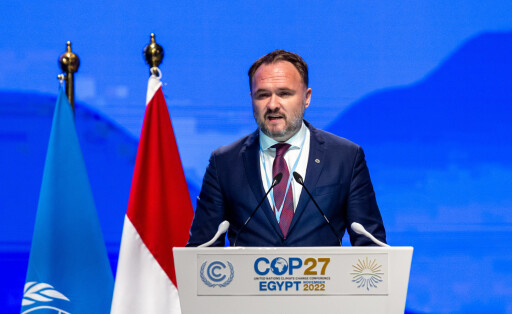
'CCS is not a substitute for phasing out fossil fuels'
Denmark wants to absorb more greenhouse gases than it emits by 2050. Bernhard Pötter spoke with Dan Jørgensen, Denmark's Minister for Climate, Energy and Utilities, about this goal, the Petersberg Climate Dialogue and a fossil fuel ban treaty.
Von Bernhard Pötter





